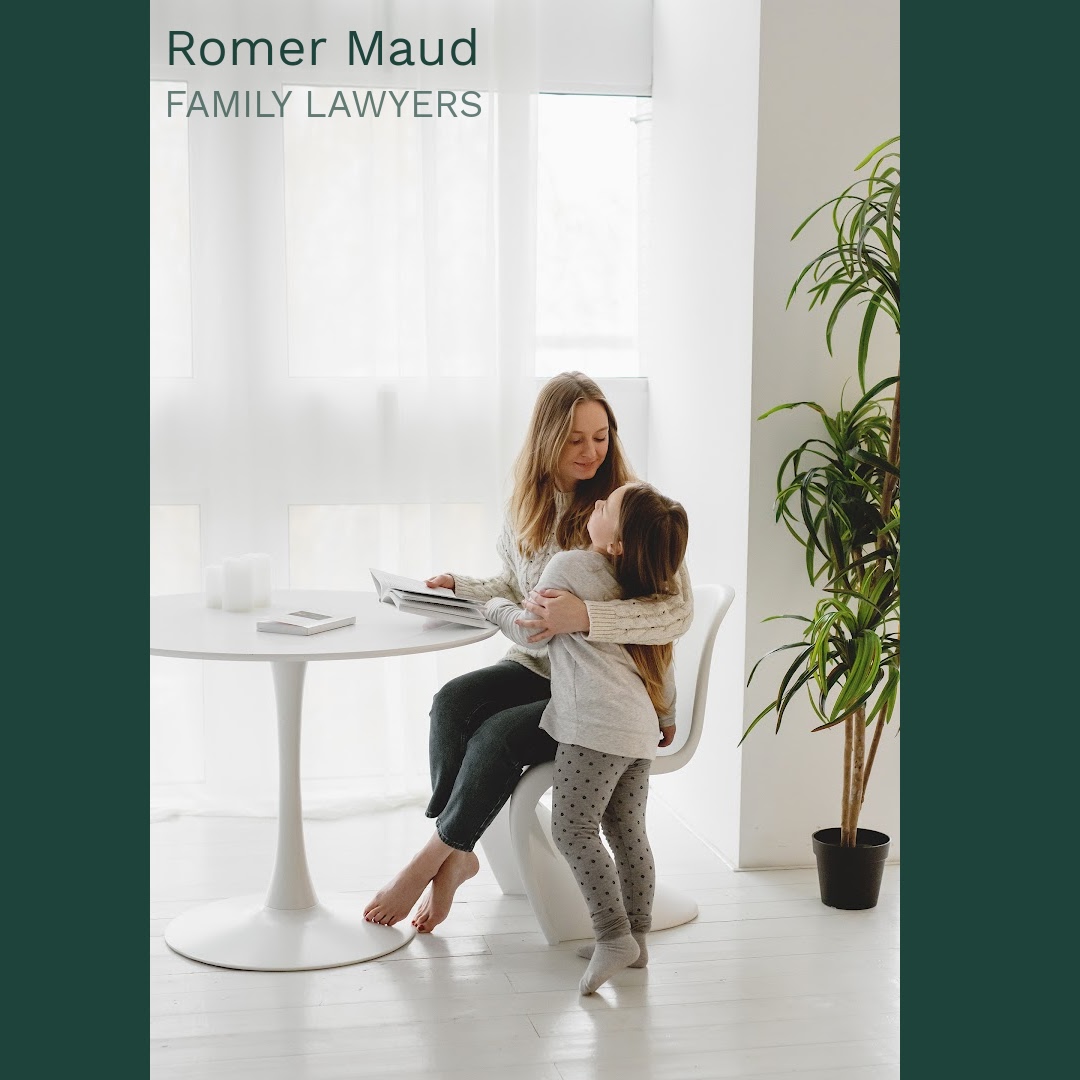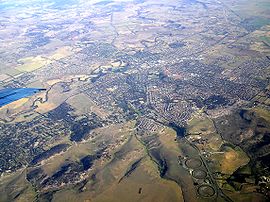

Seeking legal advice for parenting arrangements is crucial when navigating the complexities of family law. A parenting arrangement can have long-lasting implications on both parents and children, so it's essential to ensure that the decisions made are in the best interests of everyone involved.
Parenting arrangement lawyers in Sunbury have the expertise and experience to guide you through the legal process, ensuring that your rights are protected and that the best possible outcome is achieved. They can help you understand your rights and responsibilities as a parent, negotiate with the other party on your behalf, and represent you in court if necessary.
Furthermore, seeking legal advice can help prevent misunderstandings and conflicts between parents, reducing stress and uncertainty during what can already be a challenging time. By having a clear understanding of your legal options and obligations, you can make informed decisions that prioritize the well-being of your children.
Overall, consulting with parenting arrangement lawyers in Sunbury is an essential step in ensuring that your family's future is secure. Their expertise can provide you with peace of mind knowing that your rights are protected and that the best interests of your children are at the forefront of any decisions made.
Parenting after separation or divorce comes with its challenges, particularly when it comes to making legal arrangements for the care and support of children. In Sunbury, as in the rest of Australia, the legal framework for parenting arrangements is designed to protect the best interests of the children involved. Our expert parenting arrangements lawyers in Sunbury are well-versed in this legal framework and are committed to helping clients understand their rights and responsibilities.
The Family Law Act provides clear guidance on matters related to children, emphasizing that the best interests of the children are paramount. This includes ensuring children have the opportunity to enjoy a meaningful relationship with both parents and are protected from harm. The Act also encourages parents to agree on parenting matters without going to court, promoting the use of family dispute resolution services as a first step.
When agreements cannot be reached, or if the situation involves complex issues like parental relocation, family violence, or high conflict, legal intervention may become necessary. In these cases, the court considers various factors, including the children’s current and future needs, the parents' abilities to meet those needs, and the impact of any changes in the children’s circumstances.
If you’re dealing with disputes over parenting arrangements or need assistance with legal documentation to formalize an agreement, our lawyers can provide the support and representation you need. Reach out to our team in Sunbury to navigate the legal aspects of parenting arrangements confidently.

Divorce can be a challenging and emotional time for anyone.. It can be even more difficult when it comes to protecting your assets during the process.
Posted by on 2025-02-20

As parents, we all want what's best for our children.. We work hard to provide them with a safe and secure future, but sometimes unforeseen circumstances can threaten their well-being.
Posted by on 2025-02-20

Alimony payments can often be a contentious issue during divorce proceedings.. Ensuring that these payments are fair and equitable for both parties involved is crucial to maintaining a sense of fairness and justice.
Posted by on 2025-02-20

Disputes within families can be emotionally draining and cause a lot of stress for everyone involved.. Whether it's a disagreement over finances, child custody, or property division, finding a way to resolve these disputes amicably is essential for maintaining healthy relationships. Family lawyers in Sunbury understand the complexities of family law and are trained to help families navigate through difficult situations.
Posted by on 2025-02-20
| Sunbury Victoria |
|||||||||||||||
|---|---|---|---|---|---|---|---|---|---|---|---|---|---|---|---|

Aerial view of Sunbury, Victoria
|
|||||||||||||||
 |
|||||||||||||||
| Coordinates | 37°34′52″S 144°42′50″E / 37.58111°S 144.71389°E | ||||||||||||||
| Population | 38,851 (2021 census)[1] | ||||||||||||||
| • Density | 1,758/km2 (4,553/sq mi) | ||||||||||||||
| Established | 1836 | ||||||||||||||
| Postcode(s) | 3429 | ||||||||||||||
| Elevation | 309 m (1,014 ft) | ||||||||||||||
| Area | 22.1 km2 (8.5 sq mi) | ||||||||||||||
| Location | 38 km (24 mi) NW of Melbourne CBD | ||||||||||||||
| LGA(s) | City of Hume | ||||||||||||||
| State electorate(s) | Sunbury | ||||||||||||||
| Federal division(s) | McEwen | ||||||||||||||
|
|||||||||||||||
|
|||||||||||||||
Sunbury (/ˈsʌnbəri/ SUN-bər-ee, locally /ˈsʌnbri/ SUN-bree)[5][6] is a satellite suburb of Melbourne, Victoria, Australia, 38 kilometres (24 mi) north-west of Melbourne's Central Business District, located within the City of Hume local government area. Sunbury recorded a population of 38,851 at the 2021 census.[1]
Statistically, Sunbury is considered part of Greater Melbourne, as per the Victorian Government's 2009 decision to extend the urban growth boundary in 2011 to include the area in the Melbourne Urban Area as the north-western fringe of the Greater Melbourne area, giving its land urban status and value.[7]
The Sunbury area has several important Aboriginal archaeological sites, including five earth rings, which were identified in the 1970s and 1980s, and believed to have been used for ceremonial gatherings. Records of corroborees and other large gatherings during early settlement attest to the importance of the area for Aboriginal people of the Wurundjeri tribe.[8][9][10] One Indigenous name for the area of unknown language and meaning is 'Koorakoorakup'.[11]
Sunbury was first settled in 1836, by George Evans and William Jackson. It was Jackson and his brother, Samuel, who named the township Sunbury, after Sunbury-on-Thames, in Middlesex, England when it was established in 1857. The Post Office opened on 13 January 1858.[12]
Sunbury's connection with the history and development of Victoria is influential because of its most famous and powerful citizen, "Big" Clarke. In 1837, Clarke came to the area, and gained vast pastoral licences encompassing Sunbury, Clarkefield and Monegeetta.[13] His role as one of the biggest pastoralists in the colony, and his power and position within the Victorian Legislative Council, were highly significant in the early years of Victoria.
During the early decades of self-government in the Colony of Victoria there was a continual struggle in parliament, between the Legislative Assembly and the Legislative Council for ascendancy and the control of government. It was Council members, such as Clarke, who attempted to negate what they saw as the excesses of manhood suffrage, republicanism and Chartism, as embodied in the Assembly, in order to protect their own position.[14]
"Big" Clarke, as a member of the so-called bunyip aristocracy, also helped to frustrate legislative measures involving opening land to small farm selectors. Melbourne Punch depicted Clarke in anti-squatter cartoons, such as "The Man in Possession"[15] In 1859, "Big" Clarke was involved in a scandal around the discovery of gold on his holdings in Deep Creek. Shares in the Bolinda company soared and Clarke sold his shares at the peak of the rush, before the fraud was exposed. The gold assay was actually 'salted', possibly via a shotgun blast of golden pellets into the samples. Clarke claimed the rich assay was proved when washed in a soup bowl. The ever-barbed Melbourne Punch explained how the fraud worked in a cartoon of a chipped Chinese Willow Pattern plate titled "The Soup Plate".[16]
In 1874, Clarke's son William built a mansion on an estate named "Rupertswood", after his own son, Rupert. The estate had access to a private railway station. Though the station was constructed in the late 19th century, the Clarkes did not pay the railways for its construction until the 1960s. (Rupertswood railway station was closed as a result of the Regional Fast Rail project and is now only a disused platform).[17] The Clarkes also had a connection to the Kelly Gang story via their police connection with Superintendent Hare.
The younger William was the president of the Melbourne Cricket Club, and it was through that position that the touring English cricket team came to spend the Christmas of 1882 at Rupertswood. On Christmas Eve, the English team played a social game of cricket against a local team. Lady Clarke took one or more bails, burnt them, and put the ashes in a small urn, wrapped in a red velvet bag, which she presented to the English Captain, Ivo Bligh.[18] She proposed that the ashes be used as a perpetual trophy for matches between the two countries. The Ashes has since become one of the world's most sought-after sporting trophies.
In 1922, the Clarke family sold the property to H V McKay, the owner of the Sunshine Harvester Works, who died in 1926. His estate sold the property in 1927 to the Salesian Catholic order. Until recently, the mansion and surrounding property were used for educational and agricultural purposes, and as a boarding school for students undertaking both academic and agricultural endeavours. The school, known as Salesian College, Rupertswood, is still located on the property. The mansion has been restored, and is used for weddings and other formal functions.
In the early 1970s, the area, which was then still largely rural, became famous in Australia as the site of the Sunbury Pop Festival, which was held annually from 1972 to 1975.

Sunbury's residents represent diverse cultural backgrounds, and include a major working-class sector, dependent on proximity to major manufacturing and transport hubs, such as Melbourne Airport which is only 17.5 kilometres (11 mi) from the township. A recent trend for people who work in the Melbourne CBD to trade longer commute times for a more economic lifestyle (due to cheaper housing), has seen the population of Sunbury grow in number, with numerous new housing estates ringing the borders of the established township. Sunbury's population was recorded as being 25,086 in the 2001 census, and is estimated at 34,000 in 2016 census,[19] making it the 38th largest urban centre by population in Australia.

Ten bus routes service Sunbury:
Sunbury station is connected by Metro services to Melbourne on the Sunbury Line and by V/Line services on the Bendigo line to both Melbourne and country Victoria. V/Line services are not as frequent as those on the metropolitan Metro service – an approximate hourly frequency is provided by V/Line on weekdays, although on weekends service levels can be as infrequent as once every 80 minutes.
The State Government electrified the tracks between Sunbury and Sydenham in a $270 million investment, bringing more frequent passenger services to the town – these Metro services started operating on 18 November 2012.[30]

Primary schools
Secondary schools and high schools
Others
Sunbury is represented in the following sporting leagues:
Sunbury is represented by Cr Trevor Dance, Cr Jarrod Bell and Cr Steve (Jack) Medcraft in the Jacksons Creek Ward of the City of Hume. At State level, Sunbury is in the Electoral district of Sunbury, represented by Josh Bull. Federally, Sunbury is located in the Division of Hawke, represented by Sam Rae.
In 2023, Sunbury was the epicentre to a magnitude-4 earthquake,[35] which was felt by residents from Tasmania to New South Wales.
very helpful, encouraging and informative.
By working with a family lawyer in Sunbury who can assist you in drafting a formal parenting plan or consent order.
You should document any instances of non-compliance and seek legal advice from a family lawyer in Sunbury to address the issue.
Yes, a family lawyer in Sunbury can assist you in negotiating modifications to your parenting plan that are in the best interest of your child.
By seeking legal advice from a family lawyer in Sunbury who can help you understand your rights and options for establishing fair parenting arrangements.
The court will consider factors such as the childs best interests, each parents ability to care for the child, and any history of domestic violence or substance abuse.